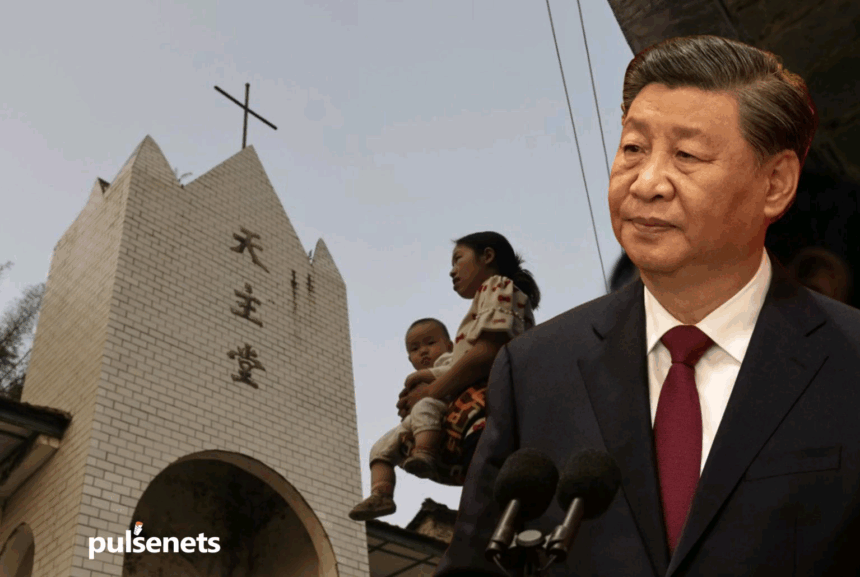-
New law outlaws all online religious activities across China.
-
Only state-approved institutions allowed to post faith-based content.
-
Rights groups warn of “digital repression” and threat to religious freedom.
China has officially enacted a sweeping law banning all forms of online preaching, prayer sessions, and live-streamed religious gatherings, according to documents obtained by PulseNets.
The measure, implemented under the Administrative Measures for Internet Religious Information Services, took full effect this week. It forbids churches, mosques, temples, and individuals from sharing or hosting any religious activity on digital platforms.
ATTENTION: Click “HERE” to join our WhatsApp group and receive News updates directly on your WhatsApp!
Authorities in Beijing claim the regulation aims to “preserve social stability” and align religious practice with Chinese socialist values.
However, many believers describe it as a devastating blow to one of the last remaining avenues for free worship.
A Christian pastor in Guangzhou told PulseNets that the move has silenced millions of worshippers. “We used to meet on WeChat for prayers and encouragement,” he said. “Now, that simple act of faith could cost us everything. It feels like they’ve cut off our spiritual lifeline.”
Before this law, virtual meetings had become essential for many believers — especially during the pandemic — as physical worship faced heavy restrictions. That limited freedom has now been shut down.
Faith Under Surveillance
Under the new rule, only state-sanctioned religious groups may post online content, and even that must pass strict government vetting. A Catholic group in Shanghai told PulseNets that their online page was deleted hours after posting a Sunday reflection on forgiveness.
Sources revealed that Beijing now uses AI-driven keyword filters to automatically detect and remove unapproved religious messages from social media and chat platforms.
Believers Go Underground
Many citizens have turned to encrypted apps and coded language to continue prayers in secret. “We whisper prayers now,” said one underground believer. “It’s like we’re practicing faith in the shadows.”
A Hong Kong-based human rights researcher described the move as “one of the most intense digital crackdowns on religion in modern times,” warning that it goes beyond censorship to the control of private belief.
READ ALSO: Johnny Drille Speaks On Struggles Fitting Into Church Music
Global Outcry and Digital Suppression
International bodies, including the U.S. Commission on International Religious Freedom and European advocacy groups, have condemned the law, calling it a dangerous precedent for global digital repression.
Reports indicate that over 2,000 religious social media accounts have been permanently suspended since January, and numerous faith-based apps removed from Chinese app stores.
An underground pastor summed up the growing fear: “Faith is not a threat. We don’t preach rebellion — we preach hope. But now, even hope needs permission.”
Despite the crackdown, PulseNets learnt that many believers are finding new ways to adapt — memorising hymns, meeting discreetly, and marking hidden symbols to identify safe gatherings.

